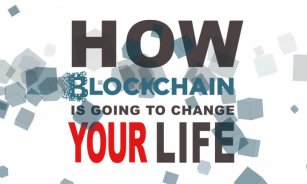 While bitcoin has yet to be embraced by the public, investors and entrepreneurs are increasingly enthusiastic about the potential for blockchain technology. For the reasons given above, proponents say that blockchain, or distributed ledgers technology, should be used to record and store a wide variety of different transactions and decisions. Information such as mortgage certificates, health records, welfare benefits and even voting registration could be managed via a blockchain. The creation of accessible, secure data networks that run in near real time really does sound like a holy grail in the digital age.
While bitcoin has yet to be embraced by the public, investors and entrepreneurs are increasingly enthusiastic about the potential for blockchain technology. For the reasons given above, proponents say that blockchain, or distributed ledgers technology, should be used to record and store a wide variety of different transactions and decisions. Information such as mortgage certificates, health records, welfare benefits and even voting registration could be managed via a blockchain. The creation of accessible, secure data networks that run in near real time really does sound like a holy grail in the digital age.
Richard Mabey is the co-founder and CEO of Juro, which uses blockchain technology to underpin the creation and signing of legal contracts. The business provides a freemium (free for the basic features, with a charge for premium features) model for SMEs and a subscription for larger companies and has signed up over 500 clients since launching last year. “We are seeing real traction from businesses and it’s clear that this technology has moved from academia into the world of business,” Mabey says.

 Open protocols are at the heart of many of the most important systems that we have. The Internet works because of TCP/IP. The web works because of HTTP. Email works because of SMTP. These are open systems that developers can build applications on top of. There are plenty of proprietary protocols out there too. But proprietary protocols tend to lock in users and drive value to the owners of the proprietary protocol, like Microsoft, Apple, Google, etc.
Open protocols are at the heart of many of the most important systems that we have. The Internet works because of TCP/IP. The web works because of HTTP. Email works because of SMTP. These are open systems that developers can build applications on top of. There are plenty of proprietary protocols out there too. But proprietary protocols tend to lock in users and drive value to the owners of the proprietary protocol, like Microsoft, Apple, Google, etc.



 The shortcomings of the Bitcoin technical architecture have led others to propose and create alternative versions that differ in important ways, such as how transactions are confirmed using different consensus mechanisms or algorithms (e.g., proof of work, proof of stake, etc.), the speed of transaction confirmation, the nature of the value/asset being exchanged, the confidentiality of transaction data, trusted nature of the participating entities (i.e., permissioned — or private — ledgers, and permissionless — or public — ledgers), customizability for business/market use cases, and so on.
The shortcomings of the Bitcoin technical architecture have led others to propose and create alternative versions that differ in important ways, such as how transactions are confirmed using different consensus mechanisms or algorithms (e.g., proof of work, proof of stake, etc.), the speed of transaction confirmation, the nature of the value/asset being exchanged, the confidentiality of transaction data, trusted nature of the participating entities (i.e., permissioned — or private — ledgers, and permissionless — or public — ledgers), customizability for business/market use cases, and so on. Since the days of Napster, rights owners have bemoaned the tendency for illegitimate sources of content to crowd out legitimate sources online. “You can’t compete with free,” is the age-old cry.
Since the days of Napster, rights owners have bemoaned the tendency for illegitimate sources of content to crowd out legitimate sources online. “You can’t compete with free,” is the age-old cry.
